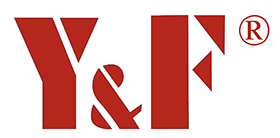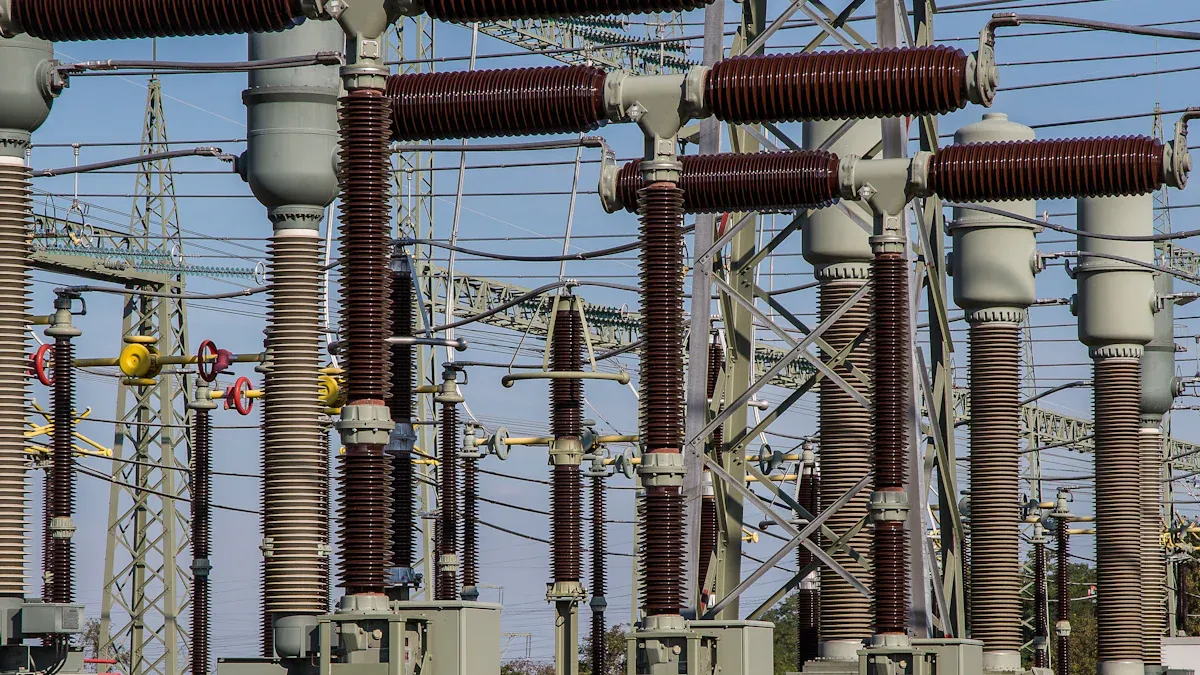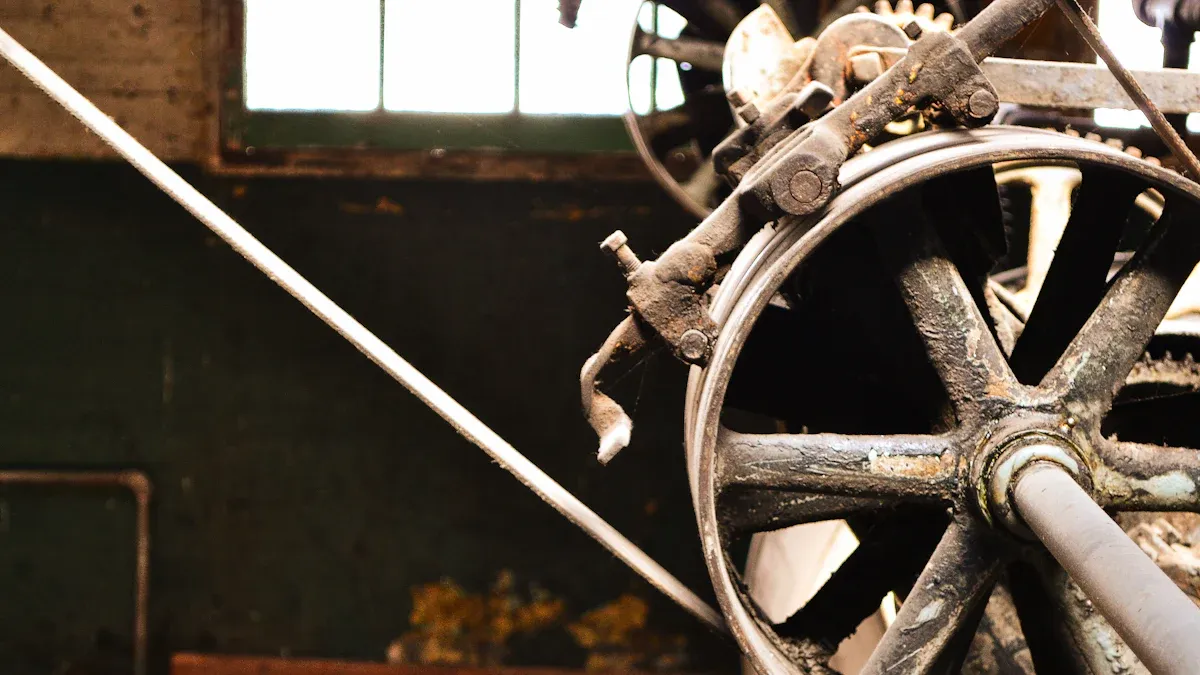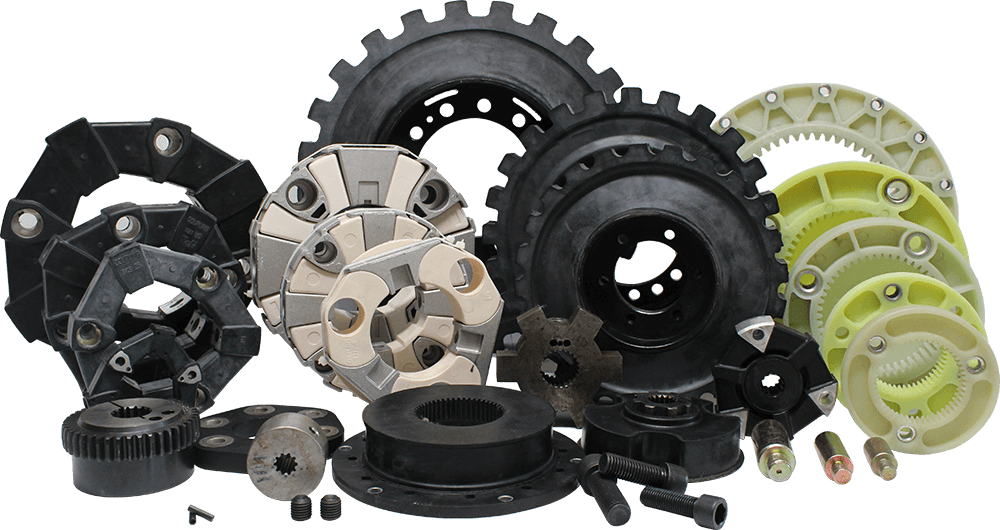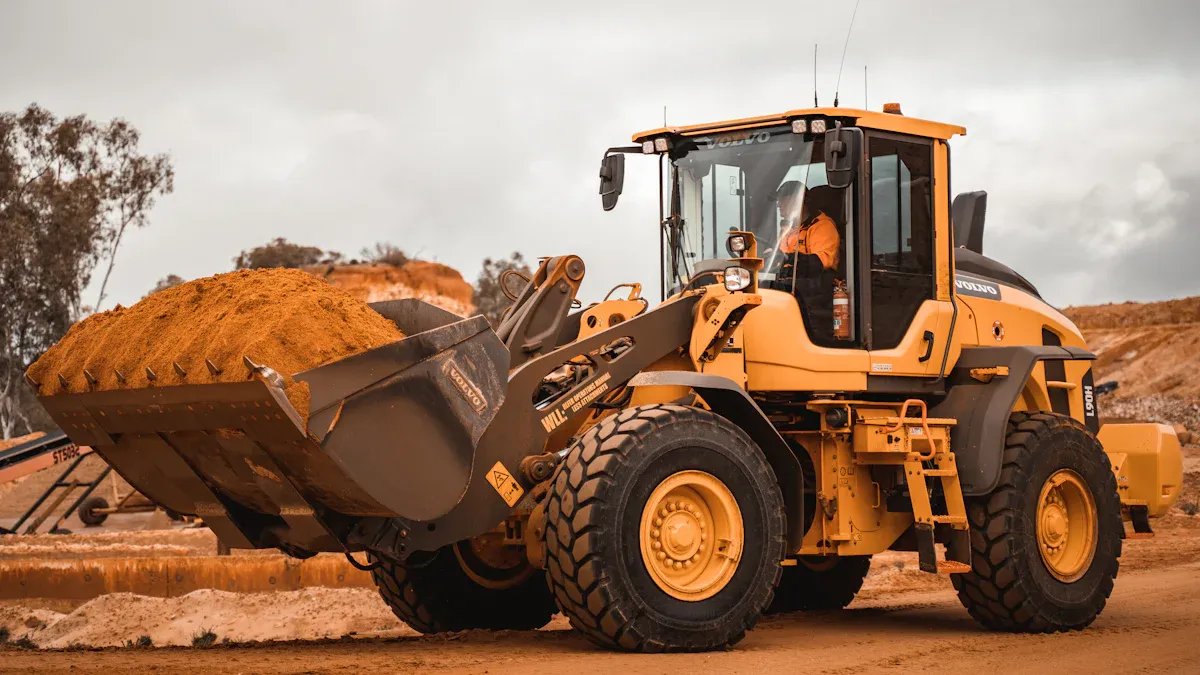
Choosing the right heavy duty machine leveling pads means you need to look at a few important things. You should check the load capacity and the material. Look at vibration control and thread size too. Check the adjustment range and how well the pads fit your equipment. Proper leveling keeps your machines safe and working well. If you pick the wrong pads, your equipment might shake. It could wear out faster or even tip over. The right pads give you better stability and less vibration. They help your machines last longer.
Key Takeaways
Pick leveling pads that can hold the machine’s weight. This stops accidents from happening.
Choose pads made from strong materials. Steel and rubber last long and lower vibrations. They also help your equipment last longer.
Make sure the pad’s thread size fits your machine. This gives a tight fit and makes putting them on simple.
Think about where you use your machine. Use pads that can handle chemicals and heat or cold. This makes them last longer.
Check and take care of your leveling pads often. This keeps your machines steady and safe for a long time.
What Are Heavy Duty Machine Leveling Pads?

Purpose and Benefits
You may ask what heavy duty machine leveling pads do. These pads help keep your equipment steady and safe. When you use them, your machines work better and last longer. Here are some ways they help:
They make a flat surface for your machines. This helps everything run smoothly and correctly.
They lower vibrations that can shake your equipment and cause trouble.
They protect your machines from damage caused by shaking or moving.
They soak up shocks and make your workspace quieter.
They stop vibrations and shocks from spreading to the floor or other machines.
They help finished parts turn out better by keeping machines steady.
They help your machines last longer by lowering stress and strain.
You can use these pads with many kinds of equipment. Some examples are drill presses, CNC machines, stamping presses, injection molding machines, lathes, milling machines, saws, air compressors, ironworkers, and press brakes. All these machines need to be steady to work well.
Tip: The right leveling pads can make your workspace safer and quieter. They can also help you save money on repairs.
Why Leveling Matters
Leveling your equipment is not just about making things look nice. It makes sure your machines work the way they should. When you level your machines, you spread out weight and stress evenly. This helps stop wear and tear on important parts. You also lower the risk of mistakes and expensive repairs.
Good leveling keeps your machines working well.
It lowers the chance of breakdowns and helps your equipment last longer.
You spend less on fixing your machines because they do not get damaged as easily.
A level machine gives you better results and fewer mistakes.
If you want your machines to last and work well, always use the right leveling pads.
Selection Criteria for Heavy Duty Machine Leveling Pads
When you pick heavy duty machine leveling pads, you need to make sure they fit your equipment and workspace. There are a few important things to check before buying.
Load Capacity
Load capacity means how much weight each pad can hold. If a pad cannot hold your machine’s weight, it might break or cause an accident. Always check your equipment’s weight and match it to the pad’s rating. Some pads hold up to 1,000 pounds each. This works for many machines. Bigger machines need pads made from strong materials like 1215 steel or low-carbon steel.
Here’s a quick look at common materials and their load capacities:
Material | Description | Load Capacity |
|---|---|---|
1215 Steel | Carburized-hardened, zinc-plated, and yellow chromated for maximum durability. | High |
Low-carbon steel | Essential for structural integrity in heavy-duty applications. | High |
TPE | Provides vibration damping, suitable for various applications. | Moderate |
Rubber | Offers flexibility and shock absorption, enhancing stability. | Moderate |
Tip: Always check the max recommended weight per pad. Some brands say not to use more than 1,000 pounds per pad.
Material Options
The material of your leveling pads affects how long they last and how much weight they hold. It also changes how well they control vibration and noise. Here’s a table to help you compare:
Material | Durability | Load-Bearing Capacity | Additional Properties |
|---|---|---|---|
Low-carbon steel | Strong & durable | Excellent | Essential for structural integrity |
Thermoplastic elastomer | Flexible, good grip | Good | Excellent shock absorption & vibration damping |
Rubber | High friction | Excellent | Absorbs vibrations effectively |
Polypropylene (PP) | Strong & stiff | Moderate | Good chemical and fatigue resistance |
If you want pads that last long and hold a lot of weight, pick steel or rubber. Rubber and thermoplastic elastomer help lower vibration. Some pads use special materials like Sorbothane. These can absorb and spread out vibrations better than regular pads.
Vibration Control
Vibration can make your machines move, get noisy, or even break. You want pads that keep your equipment steady. Materials like neoprene and rubber work well for vibration control. Non-slip rubber pads add extra grip, so your machines stay put. Heavy-duty materials are best for big machines that shake a lot.
Neoprene: Durable and great for vibration control.
Steel: Gives strong support and stability.
Rubber: Excellent at dampening vibrations and stopping movement.
Shock-absorbing pads made from Sorbothane do better at reducing vibration than regular pads. They soak up more energy and keep your machines quieter and safer.
Thread Size & Adjustment
You need to make sure the pads fit your machine’s base. Thread size tells you if the pad will screw into your equipment. Here are some common thread sizes:
Thread Size | Nominal Diameter | Application Type |
|---|---|---|
M12 | 12mm | Heavy-duty |
M16 | 16mm | Extremely heavy-duty |
1/4-20 | 1/4 inch | Light-duty |
5/16-18 | 5/16 inch | Medium-duty |
3/8-16 | 3/8 inch | Heavy-duty |

The adjustment range is important too. Leveling feet with threaded stems let you change the height easily. This helps you get your machines level, even if your floor is uneven. You can find leveling mounts in different sizes and with different adjustment ranges. Pick what fits your needs best.
Note: Always match the thread size and adjustment range to your equipment. This makes installation easier and keeps your machines stable.
Choosing the right heavy duty machine leveling pads means looking at all these things together. When you match the pad type to your equipment and application, you get better performance, less vibration, and a safer workspace.
How to Choose the Right Pads
Picking the right heavy duty machine leveling pads can seem hard at first. But you can make it easy by following some steps. Let’s see what you should do.
Assess Equipment Needs
First, look at your equipment. Each machine is different and needs special care. You need to know what helps your machine stay safe and steady. Here’s how you can find out:
Find out how much your machine weighs. Know the total weight and how it sits on the base.
Think about how exact your machine must be. If you need small changes or high accuracy, use precision leveling mounts or precision levelers.
Look at your workspace. Is your floor bumpy? Does your machine shake a lot? Adjustable wedge mounts and leveling devices help in tough spots.
Think about what kind of machine you have. Some machines need special pads for more stability.
Remember vibration reduction. If your machine is loud or shakes, pick pads that lower vibrations.
Tip: Pads that are too small or too big can cause trouble. Small pads might make your machine tip over or move. Big pads can make more vibration and hurt how well your machine works.
Match Pad Specs
After you know what your machine needs, match those needs to the pad specs. Here’s a table to help you compare:
Factor | Description |
|---|---|
Load Capacity | Find out the total weight the pad must hold, even if the machine moves or shakes. |
Material | Use rubber or elastomers to soak up vibration. Nylon is good for lighter machines. Metal is best for heavy loads or tough places. |
Thread Size | Make sure the pad fits your machine’s mounting holes. Pads come in metric and imperial sizes. |
Environmental Conditions | Think about chemicals, water, or hot and cold. Pick materials and coatings that can handle these. |
Adjustability | Decide if you want fixed-height or adjustable leveling feet. Adjustable feet help you get the right height on bumpy floors. |
Check each pad’s specs closely. Make sure the load capacity matches your machine’s weight. Look for leveling mounts that fit your machine’s thread size. If you need less vibration, pick pads made from rubber or special shock-absorbing materials.
Note: Pads must fit well and be the right height. Pads that do not fit can make your machine wobbly.
Environmental Factors
Your workspace can change which pads work best. Some places have chemicals, water, or very hot or cold air. Here’s what to check:
Environmental Factor | Description |
|---|---|
Corrosion Resistance | Needed if your workspace has chemicals or gets wet. Stainless steel and phenolic resin work well. |
Chemical Resistance | Make sure the pad material will not break down if it touches chemicals. Epoxy resin surfaces are very tough. |
Temperature Impact | Some pads work better in hot or cold places. Pick pads that can handle the temperature in your shop. |
If your floor is not flat, use adjustable leveling feet. For machines that spin or shake, keep them away from the floor slab. Heavy-duty leveling feet help big machines stay steady and safe.
Tip: Always think about your workspace before you buy. Pads that resist chemicals and water last longer and keep your machines safe.
If you want to avoid mistakes, remember these things:
Make sure the pads can hold your machine’s weight.
Pick the right type for your machine.
Use adjustable pads for bumpy floors.
Choose pads that lower vibrations if needed.
Think about temperature and water in your shop.
YNF Rubber is the top supplier for heavy duty machine leveling pads. They have many leveling feet, leveling mounts, and leveling devices for different needs. You can trust their products to keep your equipment safe and steady.
Adjustable Leveling Feet: Compatibility and Installation

Fitting to Equipment
You want your adjustable leveling feet to fit your machine perfectly. Start by checking the thread size. This tells you if the feet will screw into your equipment. Look at the thread length, too. Longer threads give you more room to adjust the height. The base diameter matters because a bigger base helps keep your machine steady. Always make sure the feet can hold the weight of your equipment. If your machine is heavy, pick feet with a high weight capacity.
Here’s a quick checklist for a secure fit:
Check thread size and length for compatibility.
Pick a base diameter that matches your machine’s needs.
Make sure the feet support the full weight, including any extra load.
Choose materials that work well in your environment.
For uneven floors, use feet with a wide adjustment range.
If you need less noise or shaking, try antivibration pads or antivibration mounts.
A good fit means your machine stays level, stable, and safe.
Installation Tips
Getting your machine level is important. Even a small tilt can cause vibration and lower your machine’s performance. You can use different methods like steel shims, level-it mounts, or level-it pads. Always spread the weight evenly across all feet. Start with wedges at their highest point. This makes leveling easier. Use a level or laser tool to check your work.
Here are some common issues to watch for:
Equipment tilt can make your machine unstable.
Too much vibration affects safety and comfort.
If the feet can’t hold the weight, they might bend or break.
The wrong base material can damage your floor.
Not enough adjustment range makes leveling hard.
Laser leveling helps you get the most accurate results. It keeps your machinery mounts perfectly aligned.
Maintenance
Taking care of your adjustable leveling feet helps them last longer. Check them often for wear or damage. Clean around the feet to keep dirt and debris away. Lubricate moving parts to stop friction and wear. Look at seals for cracks or leaks. Change filters if your machine has them. Train everyone who uses the machine on how to spot problems early.
Inspect feet and pads regularly.
Keep everything clean.
Lubricate threads and moving parts.
Check seals and filters.
Use tags or digital tools to track maintenance.
If you want your equipment to stay safe and steady, make maintenance a habit. YNF Rubber offers reliable options for all your leveling and machinery needs.
Picking the right heavy duty machine leveling pads helps your equipment stay safe. You need to check load capacity, material, vibration control, and thread size. Think about your workspace and how much you need to adjust. Here’s a simple checklist for you:
Choose pads that fit your machine’s weight and vibration.
Use anti-vibration mounts if your machine is loud.
Try anchorable mounts when you want more stability.
Pick low-profile pads for small or tight spaces.
Choose YNF Rubber for good quality you can trust.
Safety and stability are most important. If you are not sure, ask an expert before you buy.
FAQ
What is the best way to measure my machine for leveling pads?
You should check your machine’s weight and the size of its base. Measure the mounting holes for thread size. If you need help, look at your machine’s manual or ask your supplier.
Can I use the same leveling pads for all my machines?
No, you should not. Each machine has different needs. Always match the pad’s load capacity, material, and size to your equipment. Using the wrong pad can cause problems.
How often should I check or replace my leveling pads?
Check your pads every few months. Look for cracks, wear, or loose fittings. Replace them if you see damage. Regular checks keep your machines safe and steady.
Do leveling pads help with noise and vibration?
Yes! Many pads, especially rubber or shock-absorbing types, reduce noise and vibration. This makes your workspace quieter and helps your machines last longer.
Where can I buy reliable heavy duty machine leveling pads?
You can get high-quality leveling pads from YNF Rubber. They offer many options for different machines and needs. Their products help keep your equipment safe and stable.
